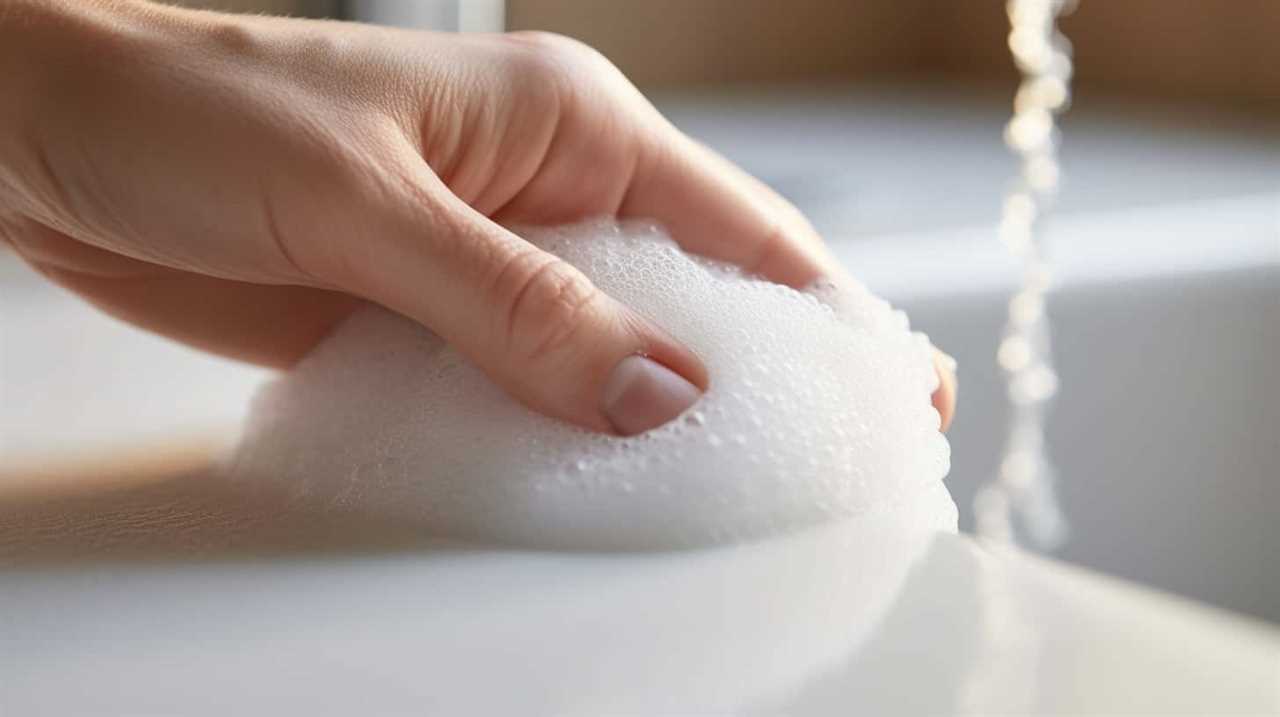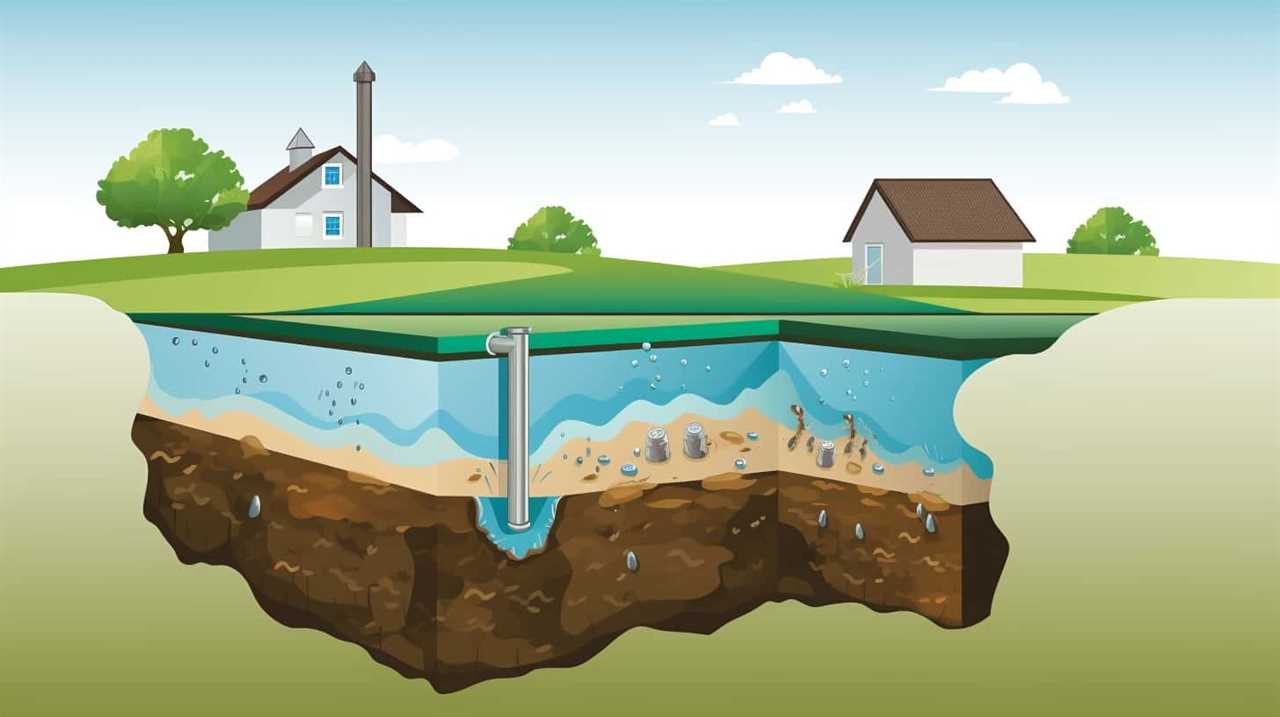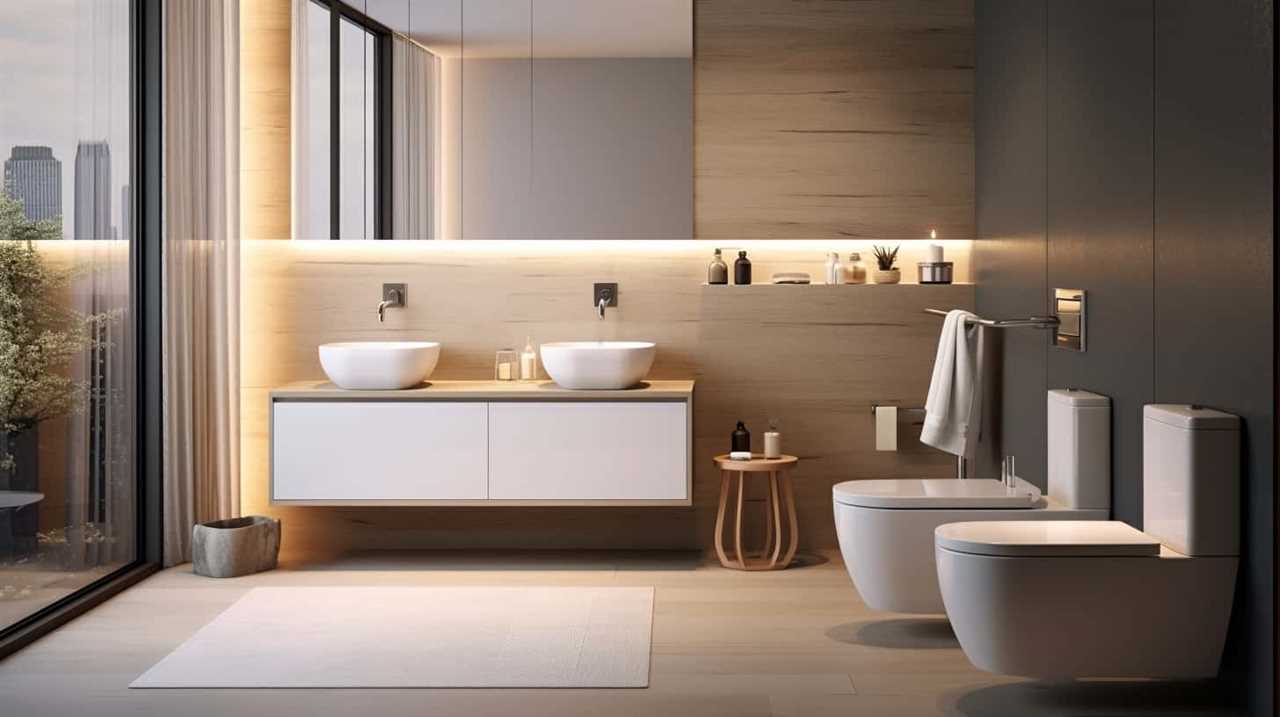Have you ever found yourself trapped in a seemingly endless shower, frantically attempting to shut off the water with no success? It’s a common experience we can all relate to.
In this article, we will delve into the common causes of a persistent shower and provide troubleshooting tips, possible DIY solutions, and when to call a professional plumber.
So, if you’re tired of battling with your shower control, buckle up and get ready to master the art of shutting off that stubborn shower.
Key Takeaways
- Common causes of a shower not turning off include plumbing issues, sediment buildup in the showerhead, faulty shower valves, leaks or corrosion in the shower valves, and water pressure problems.
- Troubleshooting steps for a shower that won’t turn off include checking other faucets, inspecting the shower handle or knob, testing the shower valve and cartridge, examining the shower diverter, and tightening or replacing pipe connections.
- If unable to resolve the issue, it is recommended to contact a licensed plumber, provide details and troubleshooting steps, schedule an inspection, discuss repair or replacement options, and obtain a cost estimate.
- Consequences of a shower not turning off can include water wastage, increased water bills, damage to bathroom fixtures and walls, risk of flooding or water damage, inconvenience, and discomfort. Preventive measures include regular inspection and maintenance, avoiding excessive force when using the shower controls, promptly addressing minor issues or leaks, installing water-saving shower fixtures, and educating household members about proper usage and care of the shower controls.
Common Causes of a Persistent Shower
Common causes of a persistent shower include plumbing issues, faulty shower valves, and water pressure problems.

When it comes to plumbing maintenance, it’s important to regularly inspect and clean the showerhead and other components to prevent blockages. Sediment buildup can restrict water flow and cause the shower to continue running even when turned off.
Additionally, faulty shower valves can lead to a persistent shower. These valves control the flow of water and can become worn out or damaged over time. It’s crucial to check for any leaks, cracks, or corrosion in the shower valves and replace them if necessary.
Lastly, water pressure issues can contribute to a shower that won’t turn off. Low water pressure can prevent the valve from fully closing, causing water to continuously flow. Addressing any water pressure problems by checking the water supply and adjusting the pressure can help resolve this issue.
Troubleshooting Tips for a Shower That Won’t Shut off
To troubleshoot a shower that won’t shut off, let’s continue our discussion by examining some possible solutions.

One of the most common shower valve problems that can cause this issue is a faulty shower cartridge. The shower cartridge is responsible for controlling the flow of water in the shower, and if it becomes damaged or worn out, it can prevent the shower from shutting off completely.
Signs of a faulty shower cartridge include leaking water even when the shower handle is turned off, difficulty in turning the shower handle, or inconsistent water temperature.
In such cases, replacing the shower cartridge is often the best solution. However, it’s important to consult a professional plumber or refer to the manufacturer’s instructions for the specific shower valve model to ensure proper installation.
Possible DIY Solutions for an Unresponsive Shower
We can try a few DIY solutions if your shower is unresponsive. Before calling a professional plumber, you can attempt some temporary fixes for a malfunctioning shower. Here are three DIY hacks to stop a stuck shower:

- Check the shower handle: Sometimes, the handle may get stuck due to mineral build-up or a loose screw. Try tightening the screw or cleaning the handle with a vinegar solution to remove any deposits.
- Adjust the shower valve: The shower valve controls the flow of water. If it’s not functioning properly, the shower may not turn off. Locate the valve behind the shower handle and use a wrench to adjust it. Be careful not to overtighten or damage the valve.
- Replace the cartridge or diverter: The cartridge or diverter controls the water flow in the shower. If it’s worn out or damaged, it can cause the shower to remain unresponsive. Consult the manufacturer’s instructions to replace the cartridge or diverter.
When to Call a Professional Plumber
If the DIY solutions mentioned earlier fail to resolve the issue, it may be necessary to enlist the expertise of a professional plumber. Signs of a faulty shower valve include leaks, difficulty turning the shower off or on, inconsistent water temperature, or low water pressure. These issues can be indicators of a more serious problem within the plumbing system that requires professional attention.
Regular maintenance for shower fixtures is crucial to prevent such issues from occurring. A professional plumber can perform inspections, identify any potential problems, and provide the necessary repairs or replacements. They have the knowledge, experience, and specialized tools to tackle complex plumbing issues effectively.
Calling a professional plumber ensures that the problem is addressed promptly and correctly, avoiding further damage and ensuring the long-term functionality of your shower.
Preventing Future Shower Control Issues
How can we effectively prevent future shower control issues?

To ensure the proper functioning of your shower control, follow these steps:
- Water pressure regulation: Maintain optimal water pressure to prevent damage to the shower control. High water pressure can cause wear and tear on the control valves, leading to leaks or difficulty in turning off the shower. Use a pressure regulator to keep the water pressure within the recommended range.
- Importance of regular maintenance: Regularly inspect and clean the shower control to prevent any buildup of mineral deposits or debris. This will help to maintain smooth operation and prevent any potential issues. Additionally, consider scheduling periodic professional maintenance to ensure all components are in good working condition.
- Proper usage and care: Handle the shower control gently and avoid excessive force when turning it on or off. Educate everyone in your household about the correct usage and care of the control to prevent any unnecessary damage.
Frequently Asked Questions
How Much Does It Typically Cost to Repair a Shower That Won’t Turn Off?
Shower valve repair cost can vary depending on factors such as the cause, materials needed, and labor. Common causes of a shower that won’t turn off include a faulty valve or cartridge.
Can a Faulty Shower Valve Lead to Other Plumbing Issues in the House?
A faulty shower valve can lead to other plumbing issues in the house. It is important to address this problem promptly to prevent further damage. Cost-effective solutions and common causes should be considered.
Is It Safe to Continue Using a Shower That Won’t Shut Off?
Temporary solutions for a shower that won’t shut off include shutting off the water supply and contacting a professional plumber. Safety precautions must be taken to prevent water damage and potential hazards.

Are There Any Temporary Fixes to Stop a Shower From Running Continuously?
There are temporary solutions for a shower that won’t turn off. Troubleshooting steps can help identify the issue, such as checking the valves, replacing washers, or adjusting the cartridge.
Could Low Water Pressure Be a Possible Cause for a Shower That Won’t Turn Off?
Low water pressure could potentially cause a shower to not turn off. Troubleshooting tips and potential solutions involve checking the water supply valves, inspecting for clogs or leaks, and adjusting the pressure regulator if necessary.
Conclusion
In conclusion, a persistent shower that won’t turn off can be a frustrating issue to deal with. However, it’s important to remember that there are common causes and troubleshooting tips that can help resolve the problem.
Interestingly, studies have shown that approximately 20% of shower control issues can be fixed with DIY solutions, saving homeowners time and money. By following the appropriate steps and knowing when to call a professional plumber, you can prevent future shower control issues and ensure a functioning and efficient bathroom.










